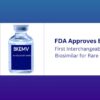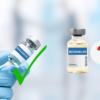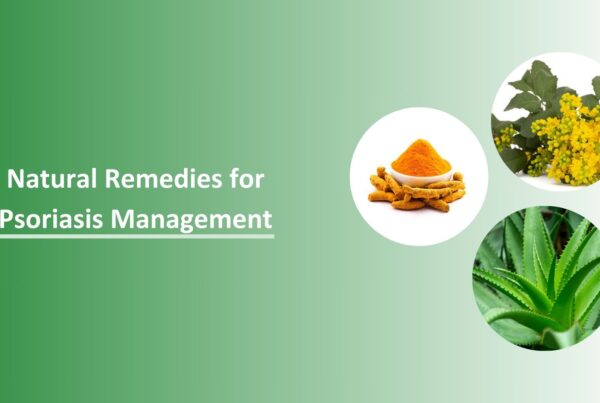Introduction:
In the global fight against the COVID-19 pandemic, vaccines have become pivotal in curbing the virus’s spread and safeguarding public health. AstraZeneca’s contributions to this effort, particularly through vaccines like Covishield and Vaxzevria, have been significant, aiding vaccination campaigns worldwide.
However, recent developments have underscored the importance of acknowledging rare yet serious side effects associated with these vaccines. In particular, attention has turned to conditions like thrombosis, prompting AstraZeneca to address concerns surrounding these adverse reactions, notably TTS (Thrombosis with Thrombocytopenia Syndrome).
Vaccine Efficacy Insights
The AstraZeneca vaccine has been administered to over 17 million individuals in the UK, and the number of reported blood clot cases is less than 40. As per research published in The Lancet in June 2022, COVID-19 vaccination efforts in India averted an extra 4.2 million deaths between December 8, 2020, and December 8, 2021.
AstraZeneca’s Acknowledgment
AstraZeneca, the renowned British pharmaceutical company behind Covishield and Vaxzevria COVID-19 vaccines, has recently disclosed significant information regarding the potential risks associated with its products. This disclosure comes amidst mounting concerns and legal disputes surrounding rare side effects, particularly thrombosis with thrombocytopenia syndrome (TTS), observed in a fraction of vaccine recipients.
TTS manifests through the formation of blood clots in uncommon sites, frequently accompanied by reduced platelet counts (thrombocytopenia), crucial for clotting blood. This state may result in serious complications and necessitates immediate medical intervention.
What is TTS?
Thrombosis with thrombocytopenia syndrome (TTS) is characterized by the presence of blood clots, along with low platelet levels crucial for clotting. These clots often occur in unusual locations such as the brain or abdomen.
Symptoms of TTS include severe or persistent headaches, blurred vision, shortness of breath, chest pain, leg swelling, persistent abdominal pain, and easy bruising or blood spots beyond the injection site.
While TTS is rare, individuals who have received vaccines associated with TTS should remain vigilant for symptoms and seek medical attention promptly if they experience any within a few weeks of vaccination. Early recognition and treatment are vital for effectively managing TTS.
Understanding Covishield and Vaxzevria
Covishield and Vaxzevria, developed through collaboration between AstraZeneca and Oxford University during the pandemic, emerged as vital tools in the global fight against COVID-19. Covishield, specifically manufactured by the Serum Institute of India, gained widespread usage, particularly in regions like India, to combat severe COVID-19 complications.
The Disclosure and Legal Challenges
AstraZeneca’s acknowledgment of potential risks has catalyzed a series of legal disputes, including a class action lawsuit in the UK. With plaintiffs in up to 51 cases seeking substantial damages, the legal proceedings shed light on allegations of vaccine-related deaths and severe injuries, prompting heightened scrutiny and public concern.
Global Impact and Public Perception
The repercussions of these legal battles extend globally, impacting millions of individuals, including those who received the Covishield vaccine. The news has sparked heightened awareness and raised questions about vaccine safety, necessitating a reassessment of public trust and confidence in vaccination programs.
Expert Opinion: Dr. Sudhir Kumar’s Reassurance
Dr. Sudhir Kumar, a neurologist at Apollo Hospital in Hyderabad, reassures that adverse effects associated with the vaccine typically manifest within a few weeks, ranging from 1 to 6 weeks post-administration. Therefore, individuals in India who received the vaccine two years ago need not be concerned.
AstraZeneca’s Shifting Position on Vaccine-Related Risks
AstraZeneca’s recent acknowledgment, made in a legal defense, contradicts its previous denial in 2023 about the connection between its vaccine and TTS. Despite refuting claims of vaccine defectiveness or overstated efficacy, the company’s admission follows scientific evidence suggesting a possible link between Covishield and VITT, a subset of TTS.
In 2023, the World Health Organization (WHO) identified TTS as a new adverse event linked to COVID-19 adenovirus vector-based vaccines like AstraZeneca’s ChAdOx-1 and Johnson & Johnson’s Ad26.COV2-S.
Importance of Adequate Data in Vaccine Evaluation
In the ongoing discourse surrounding COVID-19 vaccines, Dr. Kumar emphasizes the lack of sufficient data to differentiate between vaccines based on the risk of adverse effects. He highlights that thrombosis with thrombocytopenia syndrome (TTS) has been reported with various vaccines, including those for influenza, pneumococcal disease, H1N1, and rabies. Moreover, experts note that COVID-19 itself poses significant risks of clotting, heart attacks, and strokes, with vaccinated individuals experiencing lower rates of these adverse outcomes.
Expert Opinion: Dr. Jayadevan’s Assessment
Dr. Jayadevan underscores the effectiveness of both vaccines, asserting that there is no clear superiority of one over the other. He emphasizes that all medical interventions, including vaccines, carry potential side effects, yet millions of individuals who have received COVID-19 vaccines in India have remained healthy.
Conclusion
In conclusion, experts emphasize the critical role of vaccination in mitigating COVID-19 risks, despite acknowledging the existence of side effects. AstraZeneca’s acknowledgment of rare vaccine side effects underscores the challenges in vaccine development and deployment. While vaccines are crucial, ensuring safety and transparency is paramount for public health protection amidst the ongoing pandemic.
Reference:
- https://www.thehindubusinessline.com/news/science/astrazeneca-admits-rare-tts-risk-with-covishield-vaxzevria-vaccines/article68123550.ece
- https://www.ndtv.com/world-news/in-big-u-turn-astrazeneca-admits-its-covishield-vaccine-can-cause-side-effect-5553754
- https://timesofindia.indiatimes.com/life-style/health-fitness/health-news/astrazeneca-admits-its-covid-vaccine-can-cause-rare-side-effect/articleshow/109710995.cms
- https://www.indiatoday.in/health/story/astrazeneca-covid-vaccine-blood-clotting-tts-india-covishield-2533510-2024-04-30
Written By
Aswini PriyaMedical Content Writer
Reviewed By
Dr. AnchalMedico Expert
Last Updated
01 May 2024 | 08:00 AM (IST)










